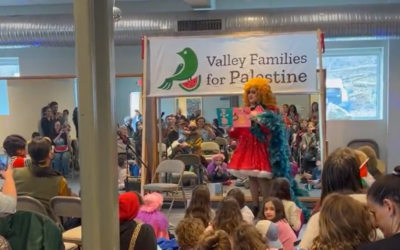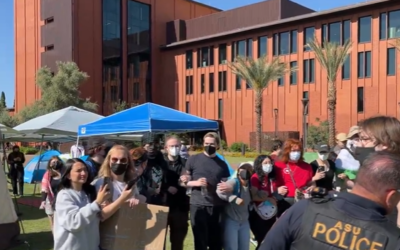By Terri Jo Neff |
The Arizona Secretary of State’s Office announced last week that enough valid signatures were turned in to let voters decide next year whether they support substantially reduced income tax rates set to take effect in 2022 or want to maintain the current higher rates.
But whether voters can actually weigh in on such issues in the November 2022 General Election is something the Arizona Supreme Court will likely be asked to decide.
In June, Gov. Doug Ducey signed an overhaul of Arizona’s income tax system as part of the $12.8 billion budget packet approved by the Legislature. It changes the state’s current five-tier income tax rates -from 2.59 percent up to a 4.5 percent base- to a two-tier plan with lower rates in 2022.
The legislation which created the new tax structure could even trigger a single 2.5 percent tax rate as soon as 2023 if Arizona’s revenues meet certain levels.
The flat tax system also addresses the impacts of Prop 208, which voters narrowly passed last year. Known as the Invest in Education Act, Prop 208 imposed an additional 3.5 percent tax surcharge effective 2021 on any income above $250,000 for a single filers or $500,000 for joint filers. The surcharge is on top of the current 4.5 percent base rate.
The revenue from the surcharge is slated to be used for public K-12 schools, but it does so by kicking Arizona’s highest earners to an 8 percent income tax. This put businesses in the state at a competitive disadvantage with Texas and Nevada which have no income tax, while New Mexico has a top rate of 4.9 percent.
Because the 3.5 percent Prop 208 surcharge was put into law by voters, state lawmakers could not directly undo it. Instead, the new flat tax rate plan would top out at 4.5 percent by absorbing the 3.5 percent surcharge.
However, supporters of Invest in Ed, now known as Invest in Arizona, want to void the new tax rate law despite the fact all Arizonans would share in the projected $1 billion savings. The group is trying to kill the flat rate plan by utilizing a provision of the Arizona Constitution which gives citizens 90 days after the legislative sessions ends to attempt to refer new state laws for voter approval.
Last week Invest in Arizona successfully submitted enough valid petition signatures to get the matter on the ballot next November as Proposition 307. In response to the petition drive, Ducey’s spokesman has continued to champion the new income tax structure, which would ultimately be the lowest flat tax in the country if state revenue targets are met.
“It keeps Arizona competitive,” said C.J. Karamargin. “We are returning tax dollars to the citizens of Arizona.”
Whether new laws dealing with state revenues such as income taxes are eligible for voter referendum has never been ruled on by a state court.
A lawsuit by the Arizona Free Enterprise Club argues that the Arizona Constitution actually prohibits issues related to the support and maintenance of state government to be referred to the ballot. A decision by Judge Katherine Cooper of the Maricopa County Superior Court is expected any day.
Whichever side loses in Cooper’s court is expected to appeal, with the Arizona Supreme Court expected to hear the case eventually.
Another wrinkle in the tax saga is that the Arizona Supreme Court ruled earlier this year that Prop 208 can be challenged on the basis of the state’s constitutional spending limits for K-12 schools. The justices recently sent the matter back to the Maricopa County Superior Court for additional arguments although the case is expected to be back at the Arizona Supreme Court early next year.








